Molecular Genetics Core Mission Statement
The Molecular Genetics Service Core assists core investigators with routine molecular biology applications and all technologies associated with the production and maintenance of genetically altered mouse strains and recombinant DNA reagents. By centralizing labor-intensive tasks and providing easy access to gene engineering technologies at reduced costs, we remove the burden of setting up such technologies in individual laboratories.
Our services are provided at “cost” reducing the financial burden on already stressed grant budgets. For example, in our core, the production cost for generating a gene targeted mouse (from construct design to delivery of a founder mouse) cam be as little as $4000. Other Transgenic cores at Washington University typically range from $10-12,000. Commercial sources vary hugely in costs but may range from $30-60,000.
Eligibility
The services are available to all members of the Department of Ophthalmology and Visual Sciences, including adjunct faculty with primary appoints in other Departments. Anyone holding an NEI grant (regardless of departmental affiliation) is also eligible to use our services.
Meet the Molecular Genetics Service Core Team
Core Director
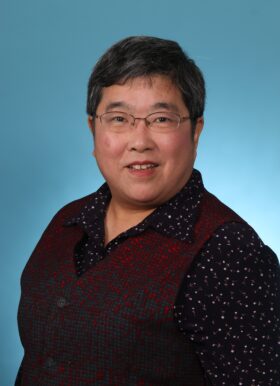
Shiming Chen, PhD
Dr. Bernard and Janet R. Becker Distinguished Professor in Ophthalmology
- Email: chenshiming@nospam.wustl.edu
- Chen Lab page
- Research Profiles
- Director of the Molecular Genetics Core
Dr. Chen will manage the core, including reviewing projects, progress and service costs.
Questions and concerns should be addressed directly to Dr. Chen.

Susan Penrose
Core Technician
- Email: penrose@nospam.wustl.edu
Susan provides expertise in the production of transgenic and knockout mice. Including management of production animals, pro-nuclear injection, blastocyst injection, embryo cytoplasm injection, embryo electroporation, cryopreservation/recovery of embryos and sperm, strain re-derivation, in vitro fertilization (IVF), genotyping of potential founders and advice in strain selection and founder screening.
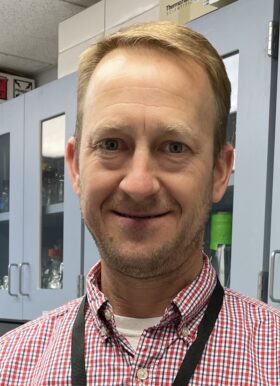
Michael Casey
Core Technician
- Email: caseymj@nospam.wustl.edu
Mike provides support in many areas of molecular biology, including the design, production and validation of DNA constructs, siRNA, and CRISPR-Cas9/guide RNAs and genotyping of founder mice
Acknowledging the core in publications
This work was supported by National Eye Institute of the National Institutes of Health under award number P30 EY002687.
We appreciate users to acknowledge our contribution to your work in publications. As an example, “We thank Michael Casey and Susan Penrose with the Molecular Genetics Service Core for their technical support”.
Procedure for Core Usage
Projects are accepted from investigators on a first come-first served basis. Investigators are asked to fill out a simple, online job requisition form
This is followed by a discussion directly with the investigator (or their designee) to clarify the specifics of the project. Core investigators will be regularly informed about the progress of their project and are notified if problems persist or alternative strategies are required. If the project is straightforward and/or routine, the investigator deals directly with the core technicians.
If the cloning project is for the production of genetically altered mice, the project then moves to the microinjection/electroporation phase. Investigators are only placed in the queue for microinjection/electroporation when all necessary reagents (transgenes, ES cells, targeting contructs, single-guide RNAs) and a practicable screening strategy for founder mice are in hand. Appropriate mouse stains are then ordered and a sate is set for microinjection/electroporation and implatation. When mice are born the offspring are screened using the pre-established strategy (typically at 2-3 weeks of age). Following weaning positive mice are transferred to the investigators for further analysis.
Description of Services
Below is our list of current services
- We perform recombinant DNA cloning, including single vectors or oligo library constructions. We are available for consultation on any project related to molecular biology, transgenic mice (including BAC transgenic and targeted transgenic), knockout mice, CRISPR/Cas9 technology, etc. For example:
a. Design and construction of constructs for transgenic mice (conventional or targeted transgenic), BAC transgenics, Knock-In/Knock-Out mice, and single-guide RNAs (sgRNA) for CrispR/Cas9-mediated genomic engineering.
b. Design and testing of genotyping PCR primers
c. Recombinant DNA cloning not related to transgenic mice (e.g. expression vectors, cDNA cloning, viral vectors and pooled constructs or libraries for high-throughput screens).
a. Production of Transgenic Mice: Transgenic animals are produced by injecting a DNA construct directly into the pronucleus of a newly fertilized mouse embryo or by electroporarted target DNA into one-cell embryos. Plasmid or BAC constructs can be used for microinjection. We use C57BL/6J inbred mice for these manipulations, however; we can accommodate other strains (e.g. F1 hybrids) by special request.
We charge per injection/electroporation day and we typically do 2-4 injections. The pups are screened for the presence of the transgene by a polymerase chain reaction genotyping assay. When the founder animals are at weaning age they are transferred to the investigator. Transgenic founders are normally received seven to eight weeks after the original injections are performed when the mice are four to five weeks old.
b.CRISPR/Cas-mediated Genomic Engineering: The use of embryonic stem (ES) cells has been the traditional method to produce gene targeting in mice, which is costly and time consuming, generally taking 9-12 months to generate single gene targeted offspring. This technology has been superseded by CRISPER/Cas-mediated genomic engineering where mice can be produced carrying multiple mutations, endogenous reporters, or conditional alleles. In this technology, specifically designed nucleotides are injected or electroporated directly into the one-cell embryo circumventing the need for selection of ES cells and chimera formation. Following target design, the generation of gene targeted mice cane be achieved in as little as 4 weeks. The molecular Genetics core has implemented all phases of this technology and is available to discuss individual needs. See Cell 157:1262, 2014 and Nature Protocols 9:1956, 2014 for more information.
c. Production of Chimeric Mice with ES Cells: The MG core maintains the option for microinjection of validated ES cells. This service aims to assist those projects where CRISPR/Cas9 modification is not optimal, such as creating a conditional allele containing two loxP sites flanking a designated exon. However, ES cell targeting, screening, clonal expansion and validation are the responsibility of individual labs. Targeted ES cells for many mouse genes are available from KOMP/EUCOMM, allowing the production of conditional (floxed) alleles. The ES cells ordered from KOMP/EUCOMM should be karyotyped and sequence validated before microinjection (https://www.mmrrc.org/catalog/general_ES_cellline_fee_resequencing.php). Also, a few custom ES cell gene targeting services are available from other sources, such as AMC at UNC https://www.med.unc.edu/amc/services/gene-targeting-services/.
We will generate chimeric mice by injecting the expanded (validated) ES cells into C57BL/6J blastocysts in our core animal procedure room. The resulting chimeric mice will be transferred to the investigator’s mouse facility 7-8 weeks after the original blastocyst injections. We charge the microinjection service per injection day, and we typically do 4 injections.
Dr. Chen will meet one-on-one with our investigators to explain the CRISPR/Cas technology and alternative approaches, and discuss how it might best be incorporated into their research strategies.
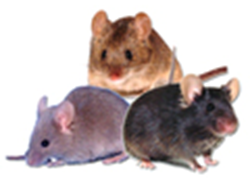
Freezing mouse embryos or sperm is a convenient way to preserve important mouse lines for possible future use while saving animal care per diems. Receiving mouse strains of interest from other institutions can be held in the LN2 freezer for subsequent resuscitation of the line by IVF.

-Sperm Cryopreservation is the preferred method for long term storage of mouse strains. The cost to freeze a line is minimal. Typically the method requires that 2 males of the strain of interest are sacrificed to harvest sperm for freezing. The cost is for each strain. Sperm will be maintained in liquid nitrogen and an annual storage fee will be assessed. 2 males, 10-20 weeks of age that are healthy and reproductively active are typically enough to guarantee recovery. Males are brought to 710C McMillan for sperm freezing.
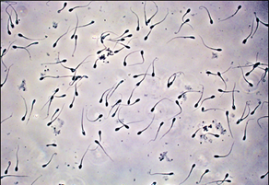
-Embryo Cryopreservation is an alternative way of long-term preservation of mouse strains. Typically, seven to ten young male mice with your gene of interest will be needed to generate enough embryos for each freezing session. The males are transferred to SRF-W animal room 111B for mating. While the males are in room 111B animal care per diems will be billed directly to the PI. Wild type females, 3 weeks of age will be purchase by the PI and sent to room 111B. The delivery dates will be designated in a pre-planned schedule. The females are sacrificed and the embryos harvested and frozen down at the 8 cell stage. It may take several freezing sessions to freeze down enough embryos in the bank. The cost is for each session. A test thaw to blastocyst stage is done each session for each strain. Frozen embryos may also be send from other institutions for recovery in our facility. The fee is for the females used as recipients for the embryos. Frozen embryos will be maintained in liquid nitrogen and an annual storage fee will be assessed.
Fresh sperm from 2 males or frozen sperm samples can be used for IVF. 20 wild type females are purchased and used for oocyte donors.
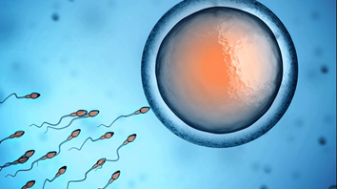
Ovarian transplants, ovariectomy and vasectomies are offered and training can be provided for these services. Fees are determined at time of services
Consultation and training in PCR techniques and breeding strategies.
Mice that have been exposed to pathogens or transfers of “dirty” mice from other facilities can be made free of disease through the rederivation. The Division of Comparative Medicine (DCM) currently provides rederivation services for the infected mice. If you plan to import dirty mice from another institution, please consult Susan Penrose for the options and details about DCM rederivation services.
Molecular Genetics Service Core Fees (FY25)
Fee Schedule – as of July 2025
Transgenic Services:
Pronuclear Injection/Electroporation into C57Bl/6: $1,542 per day
Rederivation Cost: $342 per harvest
Cryopreservation/Embryo storage: $315 per harvest day + cost of liquid nitrogen
Sperm Cryopreservation: $160 per harvest day + cost of liquid nitrogen
IVF (in vitro fertilization): $950.30
IVF with enhanced CARD IVF medium: $1170.30
Recombinant DNA vector services:
One $157 fee will be charged per project – Fee covers reagents and consumables
| Service | Description of Service |
| Standard Cloning | cloning a PCR insert into the vector of choice |
| Guide Test | For CRISPER/Cas-mediated genomic engineering |
| Simple Donor Construct | Design and production of a simple construct for CRISPR/Cas-mediated genomic engineering e.g. inserting a tag into a construct |
| Complex Donor Construct | Design and production of a simple construct for CRISPR/Cas-mediated genomic engineering e.g. producing a conditional allele |
| Guide RNA preparation | Preparation of guide RNA for injection in a CRISPR/Cas experiment |
| CAS9 mRNA preparation | Preparation of CAS9 mRNA for injection in a CRISPR/Cas experiment |
| Standard Knockout Construct Production | Design and preparation of a standard knockout construct e.g. insertion LoxP sites |
| Conditional Knockout Construct Production | Design and preparation of a condition knockout construct e.g. |
| Bac Transgene | Design and preparation of a BAC transgene |
Extra pricing based on project need pass-through costs
| Service | Description of Service | Cost |
| DNA sequencing | Preparation of sample for sequencing and the cost of the sequencing | $6 per reaction |
| Complex DNA sequencing | Preparation of sample for sequencing and the cost of the sequencing for GC rich sequencing or other difficult to sequence DNA | $8 per reaction |
| Standard DNA Oligos | Ordered from IDT – charged at cost (ordered through TCSC) | Variable |
Speciality DNA Oligos | Ordered if needed for project | Variable |
| Plasmid | Ordered if unique plasmid is needed for project | Variable |
| Genotyping | PCR analysis of DNA/tissue sample | $2.00 per sample |
| Midi Prep | Larger scale preps | $20.00 per prep |
| Mini Prep | To grow up small volume of construct | $2.00 per prep |
| Complete Plasmid Sequencing | Through the company Plasmidsaurus | $15 per Plasmid |
ddPCR
Our recharge center also has a BioRad QX200 Droplet Digital PCR system that you can book time on. Cost is based on number of samples and covers the Biorad supplies for the run. For further information, please contact Sue Penrose penrose@wustl.edu